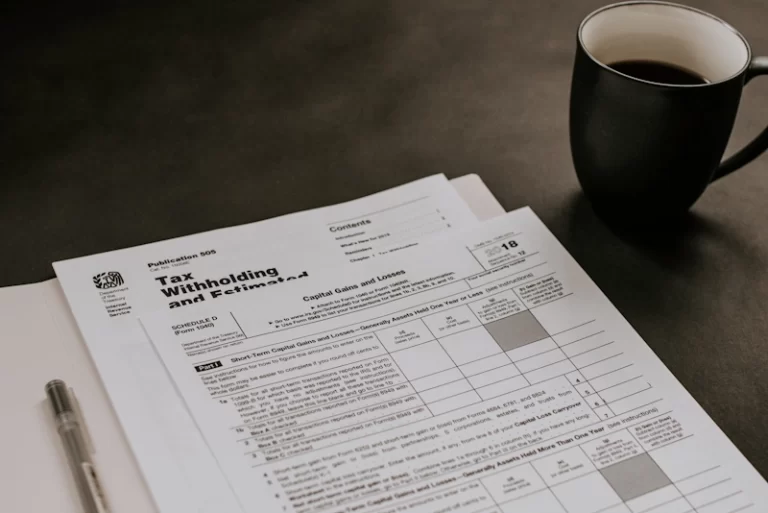Introduction:
Singapore’s Goods and Services Tax (GST) is a crucial aspect of the country’s tax system. Introduced in 1994, it is an indirect tax levied on the consumption of most goods and services within the country. It plays a significant role in the government’s revenue generation and has implications for businesses and consumers alike.
In this article, we will delve into the updated intricacies of the GST framework, understand its implications for businesses, explore the registration process, filing returns, and the penalties for non-compliance with revised GST regulations as of January 1, 2024.
Let’s begin by gaining a clear understanding of what exactly GST is and how it works in the context of Singapore’s tax system.
Understanding GST in Singapore:
GST, or goods and services tax, is an indirect tax system applied to the consumption of goods and services in Singapore. It is designed to be a consumption tax, meaning that the burden of the tax is borne by the end consumer of the goods or services, not the businesses involved in the supply chain.
Definition of GST
Under the GST system, businesses are required to charge GST on their taxable supplies of goods and services. These supplies may include the sale of goods, the provision of services, or a combination of both.
The current tax rate for GST is 9% in Singapore, reflecting the revised rate that took effect on January 1, 2024.
The prevailing rate of value of goods is determined by the GST Act. It covers a wide range of goods and services, including but not limited to consumer goods, electronic goods, telecommunication services (as of January 1, 2024), and professional services. However, there are certain items that are exempt from GST, such as basic food items, financial services, and residential properties.
It is important to note that the tax due on the import of goods is also included under the GST system. Singapore Customs takes charge of the collection of the tax from the importers, ensuring that any goods brought into the country are subject to the prevailing rate of GST.
The tax structure for exempt supplies of goods is another crucial aspect of the GST system. Exempt supplies refer to goods or services that are exempt from the tax system. This includes certain financial services, international services, and the sale of precious metals.
Understanding the definition of GST and the revised tax structure is essential for businesses operating in Singapore. It allows them to navigate the tax system effectively and ensure compliance with the regulations set by the government.
How GST Works
To comprehend the revised tax structure for services under GST, it is crucial to grasp the impact of input tax on the overall value of goods. Understanding the current tax rate (9%) applicable to the sale of goods and the revised tax framework for residential properties is essential.
Similarly, exploring the implications of reverse charge on the output tax liability provides a comprehensive understanding of how GST works. The Singapore government oversees the implementation of this indirect tax, which ultimately affects the end consumer as a consumption tax.
Applicability of GST for Businesses:
The Singapore government oversees GST compliance through the Inland Revenue Authority of Singapore (IRAS). Businesses are required to register for GST if their annual taxable supplies exceed or are expected to exceed S$1 million. Upon registration, they need to charge GST on taxable goods and services based on the prevailing rate. GST is also charged on imported goods based on their value.
This includes sales tax, excise duty, and other forms of indirect taxes levied on goods and services.
Voluntary GST Registration
Business below the S$1 million threshold can choose to register voluntarily to claim GST paid on expenses as input tax credits. This allows them to offset GST collected on sales.
Exemptions from GST Registration
Certain supplies of goods and services enjoy exemption from the revised goods and services tax (9%). Specific financial services are also exempt from this indirect tax imposed on the end consumer.
Businesses dealing in exempt supplies may be relieved from the obligation to register for GST, streamlining their operational processes.
Additionally, the sale of residential properties and precious metals falls under the category of exempt supplies, thereby excluding them from the purview of the consumption tax.
These exemptions play a crucial role in Singapore’s revised indirect taxation system.
Impact of GST on Different Business Operations:
The implementation of the revised GST rate (9%) can significantly impact various business operations. It influences pricing strategies, cash flow management, and accounting systems. Additionally, it necessitates changes in sales and invoicing processes, affecting supply chain management.
The Singapore government imposes GST through the Singapore Customs, making it an indirect tax on the end consumer. This consumption tax replaces other forms of taxes like sales tax and excise duty, thereby streamlining taxation processes and enhancing economic efficiency.
GST on Import and Export of Goods
When goods are imported into Singapore, they are subject to the prevailing rate of GST. Conversely, the export of goods from Singapore is usually zero-rated for GST.
It’s important to note that certain international services also qualify as services tax and are thus subject to the current GST rate (9%).
GST on Local Goods and Services
The prevailing GST rate (9%) applies to the sale of goods within Singapore, including digital services provided by businesses. Additionally, services tax is relevant to the supplies of goods and services tax in Singapore, encompassing insurance charges within the value of goods and services for GST taxation.
Furthermore, local supplies of goods and services tax are subject to the prevailing GST rate (9%). These regulations reflect the Singapore government’s approach to indirect taxes, ensuring compliance and revenue generation while imposing consumption tax on the end consumer.
Navigating GST Registration Process:
The process of registering for goods and services tax (GST) with the Singapore government is essential for businesses. It involves dealing with Singapore Customs and understanding the implications of this revised indirect tax (9%).
Businesses must consider how GST interacts with sales tax, excise duty, and other forms of consumption tax, especially from the perspective of the end consumer.
Eligibility Criteria
Businesses exceeding the specified turnover threshold of S$1 million are required to register for GST. Entities providing remote services might also qualify for GST registration under the revised regulations.
Documentation Required
Financial statements, business contracts, rental agreements & invoices may be required as proof of eligibility. Details of business activities, revenues, expenses, taxable supplies and GST calculations should also be included.
Filing GST Returns:
Understanding the due date for filing GST returns is crucial for compliance with the regulations set by the Singapore government.
GST registered businesses must submit returns quarterly, within 30 days from the end of each GST accounting period. Returns declare total GST collected and input tax credits claimed. Supporting tax invoices should be retained.
Exploring GST Incentive Schemes for Businesses:
Learning how to apply for GST incentives equips businesses with the necessary knowledge to access the scheme under the revised tax structure.
Types of GST Incentive Schemes:
Various types of Incentive Schemes under the revised GST system provide benefits for businesses. The prescribed accounting period plays a significant role in determining eligibility for incentives, making it essential to comprehend its significance.
Additionally, businesses providing international services can benefit from tax incentives, impacting their bottom line positively.
Lastly, businesses dealing with exempt supplies need to navigate the revised specific tax system to ensure compliance and maximize benefits.
Businesses can benefit from GST schemes like the Major Exporter Scheme (MES) and Approved Third Party Logistics Company Scheme (ALC). These provide GST suspension on imported goods.
In addition to MES & ALC, businesses can explore schemes like Approved Contract Manufacturer and Trader (ACMT), Approved Refiner and Consolidator Scheme (ARCS) and Import GST Deferment Scheme (IGDS). Each has specific qualifying criteria.
What are the Penalties for Non-compliance with GST Regulations?
Penalties for late GST registration and late filing of returns include fines up to S$10,000 and 5% of tax due respectively. For continued non-compliance, IRAS may impose further fines or cancel GST registration.
Frequently Asked Questions:
What is the GST charge in Singapore?
The current GST charge in Singapore is 9%, effective January 1, 2024. However, certain items like basic food, healthcare services, and financial services remain exempt from GST.
What items are exempt from GST in Singapore?
Basic food items like fruits, vegetables, and meat are exempted from GST. Essential medical services and educational services are also exempt.
What are Exempt Supplies under Singapore GST?
Exempt supplies include financial services, residential properties, and healthcare services. Businesses engaged in exempt supplies cannot claim input tax credits for GST paid on their expenses.
Conclusion:
GST registration is mandatory for businesses that exceed the annual turnover threshold of S$1 million, while voluntary registration is available for businesses that do not meet the threshold but want to claim input tax credits under the new rate. There are exemptions from GST registration for certain types of businesses.
Navigating the GST registration process requires meeting eligibility criteria and submitting the necessary documentation. Businesses also need to be familiar with filing GST returns under the revised rate and exploring incentive schemes offered by the government. Non-compliance with revised GST regulations (9%) can result in penalties.
In conclusion, having a comprehensive understanding of Singapore’s revised GST system is essential for businesses to ensure compliance and manage their tax obligations effectively under the new rate structure.


